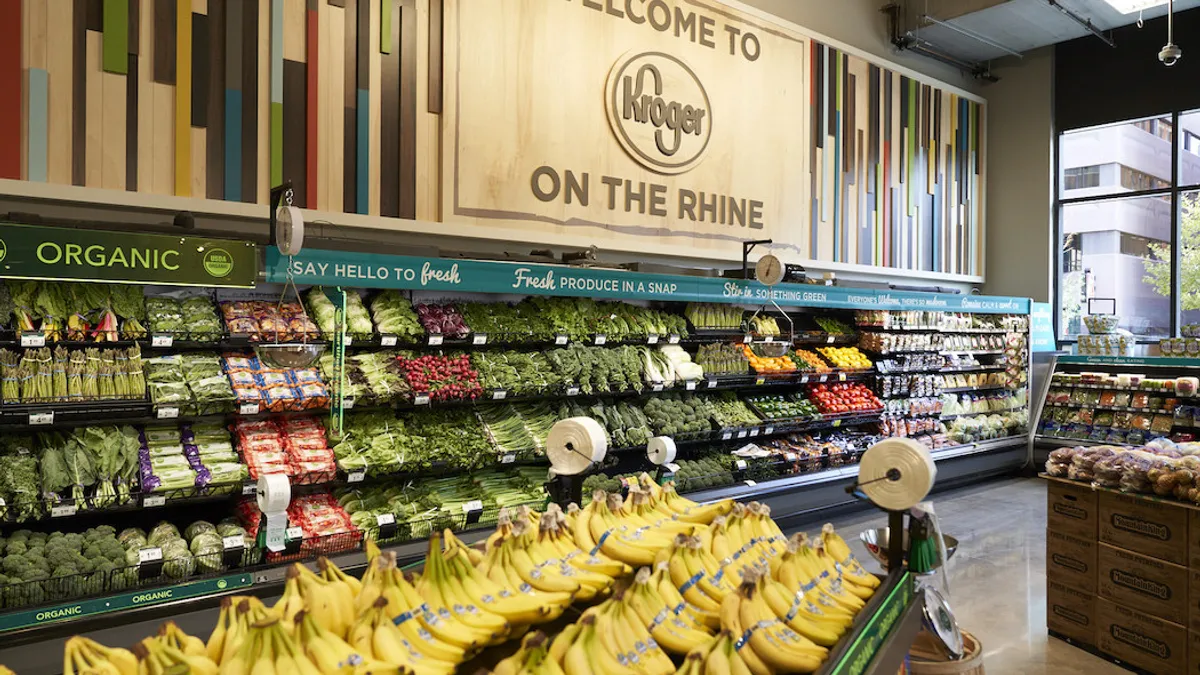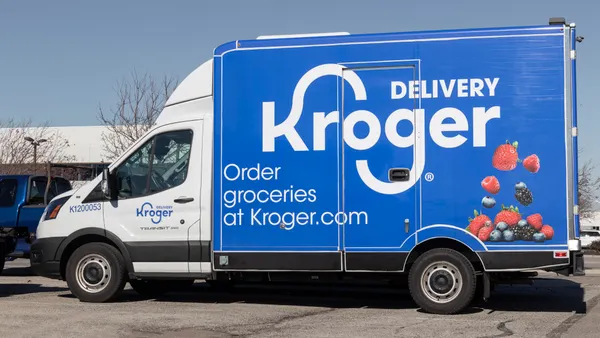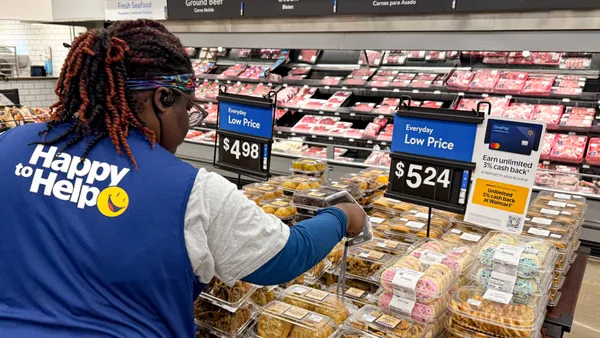Dive Brief:
- Following a stock-up surge in the middle of March, Kroger said sales have moderated, but still remain higher than average as shoppers get used to restrictions put in place to combat the coronavirus pandemic, the company announced Wednesday. The grocer reported a 30% increase in comparable store sales excluding fuel for March.
- Despite the March boost, Kroger said it remains to be seen how shoppers will adjust to widespread business closures and stay-at-home restrictions in the weeks ahead. The company said it “expects volatility in sales throughout the year” and noted increased investments along with delays in cost-saving measures could impact its long-term results. Kroger reaffirmed its fiscal 2020 financial guidance, which calls for identical store sales above 2.25% and earnings per share between $2.30 and $2.40.
- On Tuesday, Kroger announced it will boost all hourly employees’ wages by $2 an hour between March 29 and April 18. This comes in addition to bonuses of $150 for part-time and $300 for full-time employees. Over the past two weeks, Kroger said it has hired more than 32,700 workers, including individuals from the restaurant, hotel and foodservice industries.
Dive Insight:
Kroger said consumer behavior over the past few weeks has fallen into three phases, with the third and seemingly most crucial phase still to be determined.
First came the surge in stock-up buying as news reports outlined the virus’ impact in the U.S. and officials issued stay-at-home orders. That began in February as shoppers stocked up on hand sanitizers, cleaning products and pantry essentials, and peaked in mid-March. Shopper behavior has since moderated as people get used to hunkering down, the company noted Wednesday, with sales still elevated across store departments.
Beyond this second phase is a “new normal” that Kroger said has yet to be determined. Although consumers are now preparing more scratch meals at home, with sales of staples like flour, rice and canned goods spiking, it’s unclear if this behavior will persist. And while grocers are now deemed essential businesses, a shift to online buying as well as social distancing restrictions, including shortened hours and caps on the number of customers allowed inside stores, could cut into profitability.
Kroger still believes its alternative profit streams will bring in as much as $150 million in incremental profit, but said it's still unclear how demand for its marketing and banking services, store technology and other offerings will fare over the course of fiscal 2020.
Kroger also faces higher costs as it adjusts to sales demand and safety requirements. It’s cleaning more thoroughly and adjusting its supply chain to funnel in-demand products to stores. It’s also paying employees more and recruiting new workers. The company’s temporary $2 raise matches wage increases from competing grocers. To boost hiring, Kroger has partnered with companies like Sysco that are seeing demand dry up amid widespread closures across restaurant and hospitality.
“We are seeing strong sales and are at the same time investing in our business to support our customers and associates through the current uncertainty,” Gary Millerchip, Kroger’s chief financial officer said in a statement.
Due to volatility in the financial markets, Kroger said it withdrew $1 billion from its revolving credit facility on March 18, leaving it with $2.3 billion in cash and cash investments. Kroger has paused share repurchasing for the rest of the first quarter in order to boost financial flexibility.
In its 10-K form, company said much will depend on the extent and duration of the pandemic as well as the government response. Earlier this week, President Trump extended stay-at-home recommendations to the end of April, while experts say cities and states should continue enforcing social distancing measures for at least the next several weeks.











